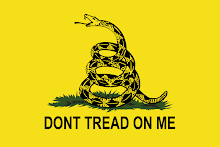The federal prosecutor in the Joe Nacchio case has requested en banc review by the Tenth Circuit Court of Appeals. Nacchio was the former CEO of Qwest, which is based in Denver, Colorado. He was convicted of nineteen counts of insider trading. A three judge panel at the Tenth Circuit later reversed the conviction and remanded for a new trial because the trial court improperly barred the defense from calling a witness.
This case is not about the insider trading per se. What is really going on is that many of the USWest and Qwest workers lost their retirement investments in the company when the company's stock tanked. The employees blame Nacchio, and there is good evidence that he was focused on his well being rather than the company's well being. I happen to know several top level managers (i.e. those who achieved the highest level possible without kissing butt). They could see Nacchio was no good for the company or the employees.
Like many actions of criminal law against the wealthy and the powerful, the charges Nacchio faced were not what the government really wanted. Following this case, it is clear that the insider trading charges are weak. The prosecution was really trying to apply some retributivist justice. The employees suffered greatly for his mismanagement. The government wanted to make him pay somehow, and the insider trading charges were their best bet.
There is little reason to see why the Tenth Circuit should grant en banc review. (The Wikipedia article on en banc is here, if you need it.). The prosecution is trying everything it can to get the panel's decision overturned. The first trial was extremely expensive, and the second trial will be too. So, the prosecution must try every appeal to avoid the cost of the new trial and to make Nacchio pay for his bad behavior.
This case is about making those who lost their lifetime investments somehow whole by throwing the bum in jail. The problem is that the government is struggling to prove a weak case. Nacchio will probably walk.
-

